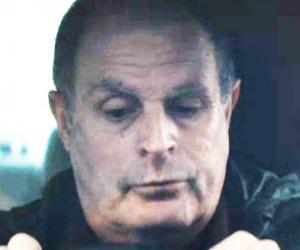
"Perfectly Normal": Autism though a lens
Eli Gottlieb
Email successfully sent
close windowAt the halfway point of “Perfectly Normal,” the artful short documentary about a man with Asperger’s syndrome, there is a rare filmic experience of the sensory overload of autism.
For about a minute, as Jordan, the articulate middle-aged subject of the film, speaks about his own condition, the music skitters and booms, rapid jump cuts intensify the sense of danger, and in this swelling moment of uncertainty, the viewer experiences a fleeting sense of what it might be like to live in a condition of permanent, anxious neural flood. “You think life has one circle, but no, there are circles which are added to extra circles that create chaos, and it looks like you’re drowning,” Jordan says.
Of course there’s no way for those without autism to actually understand the autistic experience. I grew up with a severely autistic older brother named Joshua, and after observing him closely for more than 40 years, find his emotional and cognitive process as fundamentally mysterious as ever. The impenetrability of autism, with its seemingly endless variants and its essential “otherness,” is its hallmark. All this renders Jordan’s testimony that much more useful and intriguing. He is a reporter at a hinge-point of consciousness, able to inhabit his condition while describing it for us — whether we are “neurotypicals” or lodged somewhere on the spectrum — with remarkable precision and insight.
As a documentary, though, “Perfectly Normal” is necessarily a partial version of the truth. When Joshua and I were filmed for a short documentary, for example, I was struck by how the film showed a higher-functioning version of the person than the one I knew. That was because, like many people with developmental disabilities, my brother had evolved a repertoire of stock responses to social situations.
Related Articles
The hidden link between autism and addiction
Shane Stoner’s addiction began in 2008. He lost a factory job, his parents divorced, his father died—and t ..
Autism researchers discover genetic 'Rosetta Stone'
Distinct sets of genetic defects in a single neuronal protein can lead either to infantile epilepsy or to auti ..
Couple builds a community for their adult son with autism
Debra Caudy's youngest child, Jon, was diagnosed with moderate to severe autism when he was four years old, a ..

